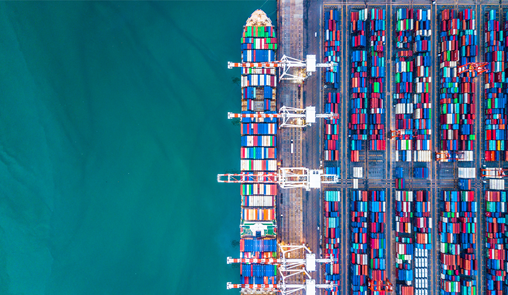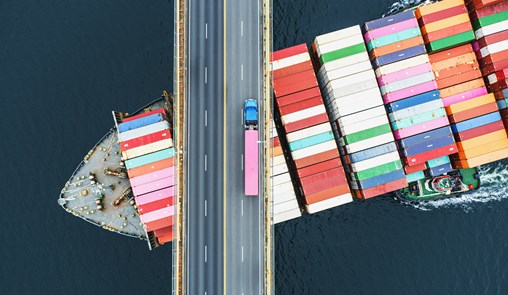Sergei Magnitsky, a Ukrainian-born Russian tax lawyer, died in custody in 2009. He had been arrested after accusing Russian government officials of serious fraud. His death while in the hands of the Russian State took place in suspicious circumstances, alleged to have included torture and denial of medical care. The terrible treatment meted out to him, and the crimes that he tried to expose, caused Western governments to think of ways to deny foreign persons and entities the use and enjoyment of the financial gain derived from their crimes, as a way of reducing the prospect of the crime being committed in the first place.
The United States Congress was an early mover in this area, enacting what have since become known as ‘Magnitsky sanctions’. These laws allow the US Government to freeze the US assets of human rights abusers and corrupt foreign officials and business people, and to bar them from travelling to the United States.
Australia has now given greater impetus to the efforts of the international community to stamp out human rights abuse and criminal activities by way of the passage of the Autonomous Sanctions Amendment (Magnitsky-Style and Other Thematic Sanctions) Act 2021. The new law better describes the purposes for which the government may sanction foreign individuals and entities.
The topic is of critical importance to cross-border business because it is the businesses or individuals that become caught-up in dealings with ‘sanctioned’ people and entities, and their assets, that are liable to be penalised for their conduct.
In this newsletter, senior associate Alistair Bridges looks at the effect of these amendments, and considers what we can expect in the future.
What are Magnitsky sanctions?
The UK, the EU, and Canada have also implemented similar legislative regimes. Magnitsky laws seek to address a specific problem - namely, the movement of assets by foreign criminals and their ability to travel to other countries to protect their wealth or escape future culpability. In this context ‘criminal’ conduct is defined by the country applying the sanctions. Typically, the practices include human-rights abuses, war crimes, wide-scale fraud, and State corruption.
The Australian reforms embrace the idea of sanctions that target individuals, and now more specifically address a range of themes, including proliferation of WMDs and cyber-crime, against which the laws can be deployed.
Australia’s autonomous sanctions law
Australia’s autonomous sanctions laws are complex. The existing law, the Autonomous Sanctions Act 2011, sets out the architecture through which autonomous sanctions can be imposed and enforced. The law explains the offences arising from the contravention of sanction and the powers of the Australian government to enforce such laws.
It is in the regulations made under the Act that the various sanctions regimes are given content. Persons or entities can be named and defined therein, and the sanctions able to be applied against them can be described. Prohibitions can include export or import behaviour, provision of services, and certain commercial activities, amongst other things.
Difference is in the detail
Prior to these latest amendments, the overarching law included a ‘purpose’ section, simply stating that the purpose of the Act was ‘to provide for autonomous sanctions’. Post amendment, this ‘purpose’ has become an ‘object’. The primary object remains the same, however the amended law expands on this by drawing a distinction between ‘country-specific sanctions’ and ‘thematic sanctions’, with neither of these more clearly articulated ‘objects’ limiting the primary object.
‘Country-specific sanctions’ appears to be a reference, or a characterisation, of measures that Australia has traditionally, but not exclusively, imposed as autonomous sanctions, such as arms embargos and similar. However, the new law goes further than before in explaining what can be done by the government, and in what circumstances, thereby ‘telegraphing’ a more specific warning to individuals and entities that might engage in criminal activities, and to Australian businesses that might be considering doing business with such criminal actors.
The law states that sanctions may be applied ‘to address matters that are of international concern in relation to one or more particular foreign countries’, which in the past has extended to human rights abuse. For example, Australia maintains an autonomous sanctions regime relating to the Former Republic of Yugoslavia which imposes targeted financial prohibitions against designated persons and entities that were involved in genocide, crimes against humanity and war crimes perpetrated during the Yugoslav war. In addition, Australia has sanctions in place against individuals and entities involved in human rights violations in Zimbabwe and Syria.
It is in the new definition of ‘thematic sanctions’ that Australia has strongly articulated its concerns about particular types of behaviour, by specifically listing them out. Thematic sanctions may address the following:
- the proliferation of weapons of mass destruction;
- threats to international peace and security;
- malicious cyber activity;
- serious violations or serious abuses of human rights;
- activities undermining good governance or the rule of law, including serious corruption; and
- serious violations of international humanitarian law.
In this way the power to impose autonomous sanctions is largely unaltered, but there is now a clearer statement of when they may be used.
Chief law officer steps in
As well as broadening the public’s understanding of the scope of autonomous sanctions, the new laws introduce a new decision maker into the mix. Up to now, sanctions such as these have been the prerogative of the Minister for Foreign Affairs. Now, that Minister needs to have the written agreement of the Attorney General in order to impose new sanctions. This change can be seen as a product of the increasingly pronounced regulatory tension between security laws and civil liberties. The involvement of the Attorney-General, who is Australia’s chief law officer, is likely to have been motivated by the need to have a safeguard in place against the potentially autocratic imposition of penalties and restrictions on economic and personal freedoms.
Operative coverage of sanctions now under consideration
As noted, it is the regulations that give operative content to sanctions enabled by the Act. An exposure draft of the amendment regulations is presently available on the website of the Department of Foreign Affairs and Trade (accessible here). The regulations make specific provision for the designation of persons or entities engaged in activities such as the proliferation of weapons of mass destruction; significant cyber incidents; serious violations or serious abuses of human rights; and serious corruption. Curiously, the regulations do not refer to serious violations of international humanitarian law despite this being specifically mentioned in the Act as a circumstance in which autonomous sanctions may be imposed.
The amended regulations will provide more detail regarding the decision-making process the Minister must apply in designating a person or individual under each of the thematic scenarios. In some instances, this is made quite clear, such as with regard to the designation of people in relation to a significant cyber event. For other items, there is less detail, and the intent is less clear. For example, the explanatory memorandum for the regulations suggests that the Minister’s power regarding serious violations or abuses of international human rights is linked to specific rights recognised under the International Covenant on Civil and Political Rights (ICCPR) including the right to life, the right not to be subjected to torture or cruel, inhuman or degrading treatment or punishment, and the right not to be held in slavery or servitude or to be required to perform forced or compulsory labour. However, the ICCPR is not mentioned in the regulations at all, which raises questions about the extent to which it will be a relevant reference point for the exercise of the Minister’s discretion.
A symbolic law with meaningful content and business impact
Legislative acts of symbolism are rare, and usually not made without purpose. There has been growing discussion regarding the use of Magnitsky-style sanctions throughout the Western world, and the Australian government would not want to be ‘left behind’. But the new laws are much more than just window-dressing. The explanation of ‘thematic sanctions’ goes beyond what is generally understood to fall within the idea of Magnitsky sanctions, including malicious cyber activity, serious violations of international humanitarian law and undermining the rule of law. This indicates there is an intent to act.
Importantly, it is certain dealings with designated people or entities or their assets that are prohibited under sanctions law. Apart from in the case of travel bans, it is not the perpetrator of the human rights violation or other proscribed activity that is directly liable for any sanctions contravention. Rather, it is Australian businesses that breach the sanctions prohibitions that face the penalties. Knowing who your overseas business partners are, and where the money comes from, has never been more important.
This memo presents an overview and commentary of the subject matter. It is not provided in the context of a solicitor-client relationship and no duty of care is assumed or accepted. It does not constitute legal advice.
© Moulis Legal 2021











